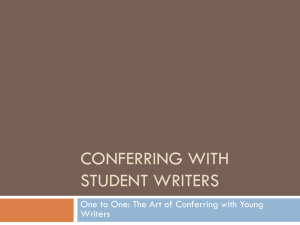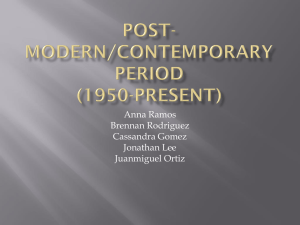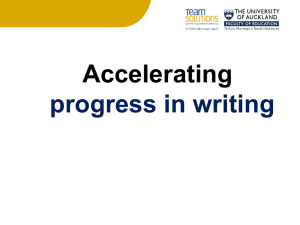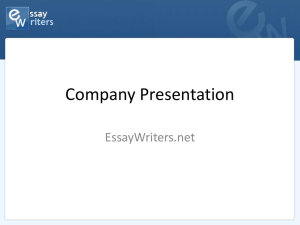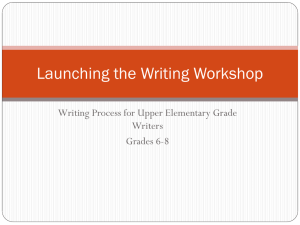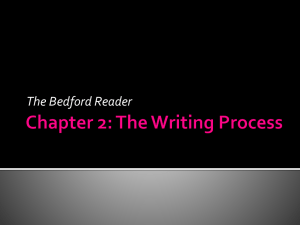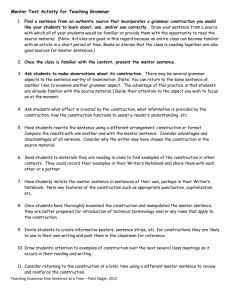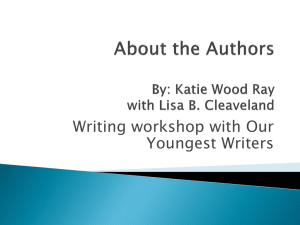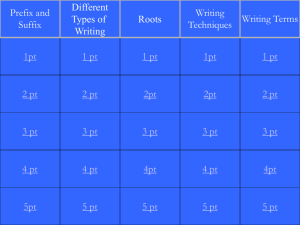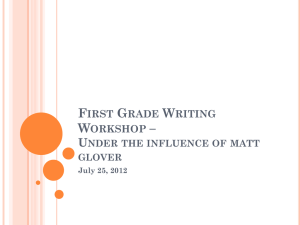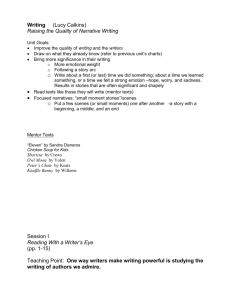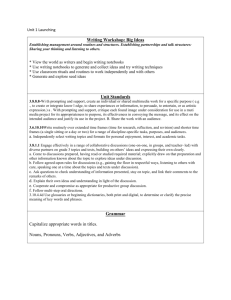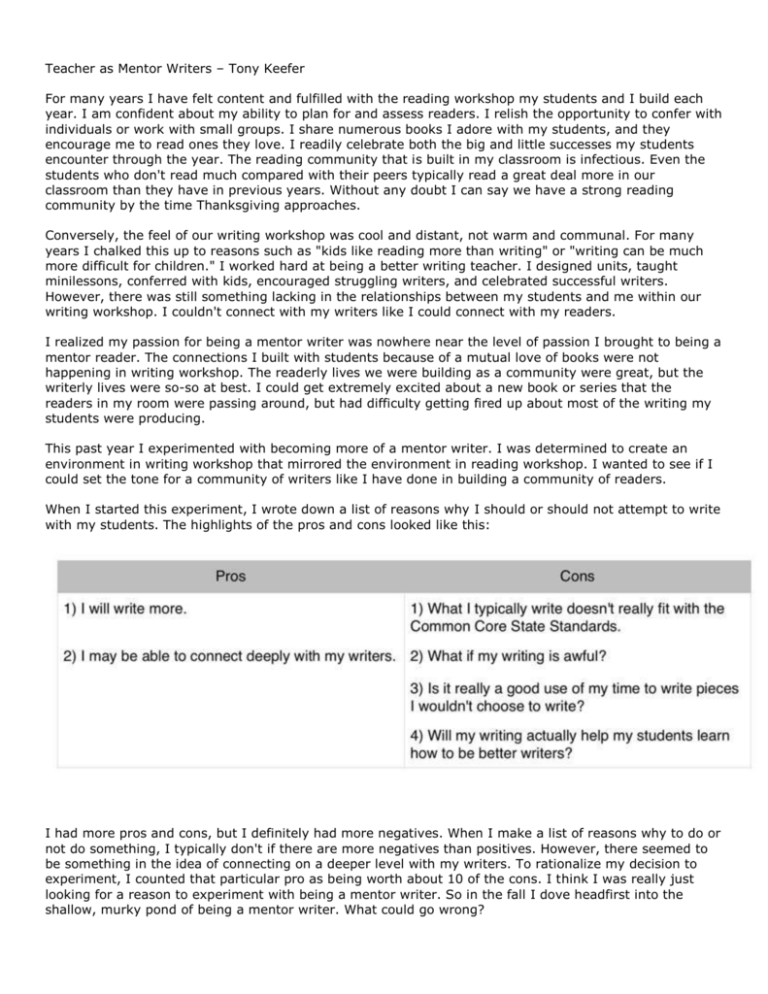
Teacher as Mentor Writers – Tony Keefer
For many years I have felt content and fulfilled with the reading workshop my students and I build each
year. I am confident about my ability to plan for and assess readers. I relish the opportunity to confer with
individuals or work with small groups. I share numerous books I adore with my students, and they
encourage me to read ones they love. I readily celebrate both the big and little successes my students
encounter through the year. The reading community that is built in my classroom is infectious. Even the
students who don't read much compared with their peers typically read a great deal more in our
classroom than they have in previous years. Without any doubt I can say we have a strong reading
community by the time Thanksgiving approaches.
Conversely, the feel of our writing workshop was cool and distant, not warm and communal. For many
years I chalked this up to reasons such as "kids like reading more than writing" or "writing can be much
more difficult for children." I worked hard at being a better writing teacher. I designed units, taught
minilessons, conferred with kids, encouraged struggling writers, and celebrated successful writers.
However, there was still something lacking in the relationships between my students and me within our
writing workshop. I couldn't connect with my writers like I could connect with my readers.
I realized my passion for being a mentor writer was nowhere near the level of passion I brought to being a
mentor reader. The connections I built with students because of a mutual love of books were not
happening in writing workshop. The readerly lives we were building as a community were great, but the
writerly lives were so-so at best. I could get extremely excited about a new book or series that the
readers in my room were passing around, but had difficulty getting fired up about most of the writing my
students were producing.
This past year I experimented with becoming more of a mentor writer. I was determined to create an
environment in writing workshop that mirrored the environment in reading workshop. I wanted to see if I
could set the tone for a community of writers like I have done in building a community of readers.
When I started this experiment, I wrote down a list of reasons why I should or should not attempt to write
with my students. The highlights of the pros and cons looked like this:
I had more pros and cons, but I definitely had more negatives. When I make a list of reasons why to do or
not do something, I typically don't if there are more negatives than positives. However, there seemed to
be something in the idea of connecting on a deeper level with my writers. To rationalize my decision to
experiment, I counted that particular pro as being worth about 10 of the cons. I think I was really just
looking for a reason to experiment with being a mentor writer. So in the fall I dove headfirst into the
shallow, murky pond of being a mentor writer. What could go wrong?
Almost every cycle of our writing workshop I wrote with my students. If we were in a narrative cycle, I
worked on narrative writing. Research writing? I researched. Poetry? Call me a poor man's Ralph Fletcher.
Trying to become more of a mentor writer was not easy. There were many mornings I woke up an hour
earlier than usual to write for my students, because I really couldn't sneak off into a corner during writing
workshop to revise a poem. There were plenty of times that my inner critic would almost prevent me from
sharing anything with my students. And like some of my students, I had times when I didn't adequately
finish a piece of writing.
However, the work I put into this experiment paid off immeasurably. For the first time in nearly 20 years
of teaching writers, I felt like I connected with them. I could authentically understand bumps in the road
my students were having. I knew better when my students needed just a little nudge to make a huge shift
in finding their voices as writers. I honestly felt that I was a member of a writing community, not just the
guy who gave advice and wrote comments in margins.
Mistakes Along the Way
I also made lots of mistakes in this quest to become a mentor writer. At times I shared too much of my
work at once. When this happened, I would see writing moves I have made replicated by too many of my
students. For example, when I shared a draft of a poem that was a collection of two-line stanzas
describing a baseball player stealing second base, I suddenly saw loads of descriptive poems that also had
two-line stanzas. As flattering as that was, I wanted my writers to explore possibilities without mimicking
my attempts.
Another mistake I made was not sharing the successes I had as a writer often enough. I realized when
looking at my notes late in the spring that a substantial number of my minilessons about process ideas
and conference notes focused on the potential troubles a writer could have. Because of the heavyhandedness of trying to convey the idea that "you can always make something better," I unfortunately
had some writers who couldn't finish a piece because they worked more than necessary to find something
to revise. It felt like I had set the stage for some kids to become more neurotic about their writing than I
am about mine.
As I begin the upcoming school year, I know that I will become better at being a mentor writer for my
students. I may recycle a few pieces of writing so that I don't have to wake up early on as many days, but
I will continue to work the process with my students. I will continue to search for ways to build
connections with my writers that focus on the positives more. I also will be looking for new strategies that
will not only help my writing, but help my students grow as writers. This continued effort will be
challenging, but I am confident that growing a more authentic writing community will make the struggle
worth all the effort.
Tony Keefer
Tony Keefer is a 4th grade teacher in Dublin, Ohio.
© Choice Literacy. All rights reserved.

